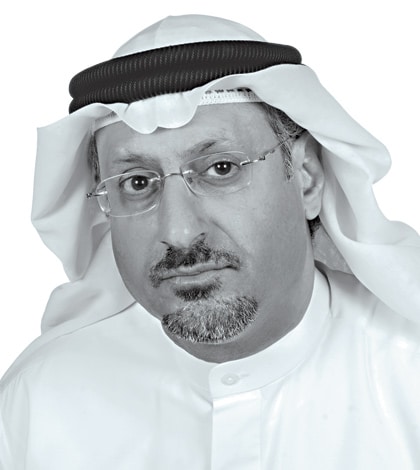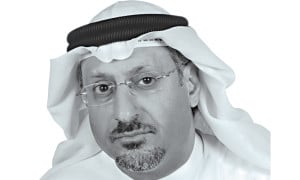

MD of Dubai Knowledge Village (DKV) and
Dubai International Academic City (DIAC)
Dr Ayoub Kazim, the Managing Director of Dubai Knowledge Village (DKV) and Dubai International Academic City (DIAC), is responsible for strategically steering all DIAC and DKV entities and further consolidating their status as leading centres of learning excellence in the region. In an interview with Seema Gupta & Manish Arora of Elets News Network (ENN), he speaks about partnerships with Indian educational institutions, role of technology in education, Dubai Vision 2020 and more
Please share with us your partnership with Indian institutions and vision for future.
We (Dubai Knowledge Village and Dubai International Academic City) have partnered with several Indian academic institutions including Manipal University, BITS Pilani, IMT and Amity University in Dubai.
These institutions have majorly contributed towards human capital development and economy, especially meeting the needs and expectations of the industries here.
We have a large student base, comprising 145 nationalities, which not only consists of the students from undergraduate level, but executives also come here to pursue various post graduate programmes.
Talking about the models adopted by the universities here, some of them have adopted the Blended Learning model, which has proved quite successful in the local context. For example, Manchester Business School has employed this model and has been here for almost nine years. Initially, they had only 55 graduate students and now they have more than 1,200 post graduates, mainly catering to the business executives in Dubai.
However, we want to move beyond that. We are working on a paper to fi nd out how the future of education would look like. In my experience of over 25 years, I have seen the evolution of education not just regionally but also globally.
In future, we are looking for students to interview faculty members and administrators of the institutions to know what they want. This way, at the end of the term, we can fi nd out if they had really imparted the education needed by the students and how well the faculty members performed. This is one of the models we want our academic partners to explore in the future.
With regard to digital education, we have been focusing on online education over the recent past. This is an area where we have spotted some challenges. The main challenges faced by the providers of these types of courses are public perception, dual recognition and employer’s perception towards these degrees. These perceptions need to be changed as we are in the digital age.
His Highness Sheikh Mohammed Bin Rashid Al Maktoum, set the goal to make Dubai the most advanced smart city in the world. We are going in that direction and for that we need the support of human capital…
When you say online education, can the providers offer these courses without setting up campuses here?
This is something that needs to be understood as the decision should be made by the Ministry of Higher Education and most of the universities are licensed by the Knowledge and Human Development Authority (KHDA). As for students, we need to tell them that these universities are accredited and licensed by the government authorities. These organisations can operate only if they have the proper license, either from the local or federal authorities.
According to you, what is the role of technology in transforming education in Dubai?
It has been great, as couple of years ago, His Highness Sheikh Mohammed Bin Rashid Al Maktoum, set the goal to make Dubai the most advanced smart city in the world. We are going in that direction and for that we need the support of human capital. He has a great vision, as he knows we have the capability and resources to fulfi l that vision. Above all, we have to persuade our academic partners to offer the right programmes that are desired by the industry and will lead to human capital development in the region.
What is your vision to make the universities in Dubai the best globally?
It is good to be highly ranked; however, when it comes to being assessed by external parties for ranking purposes in the country or a region, my personal suggestion is that universities should not solely focus on this. They should base their academic operations on developing the local and regional communities, regardless of ranking concerns. They have to think how they can support the vision set for the country.
I have seen that some universities are so obsessed with rankings that they have forgotten their main objective and role in the community and the country. However, their responsibility should be to contribute to the vision of the government and to develop human capital in the region. The rankings and accolades will surely come after this, but the universities need to focus on their primary objectives.
What is your take on the Dubai Vision 2020?
To achieve the goals of Vision 2020, we need to keep in mind the sustainability and the future. We need to draw on our partners to offer programmes that would contribute to fulfi lling the vision for 2020, where there will be around 280,000 workers needed for Expo 2020.
In this regard, the government has done a fantastic job. Every year, we have 13,000 Emiratis graduating from the current education system. This is where we need to fi ll the gap. We have to develop both regional and international workforce with a wide range of skill sets needed in different sectors.





















